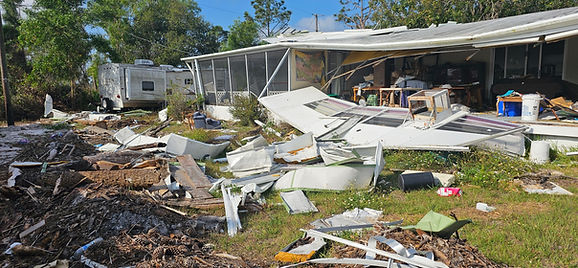Florida Presbyterian Disaster Assistance Network

Scroll Down for Hurricane Prepared Tips
Volunteer Teams Needed for Hurricane Recovery
TWO SITES AVAILABLE
Pinellas County and Sarasota County
.jpg)



FLAPDAN Celebrates 20 Years!
Watch Our Video
Download and share this video
https://vimeo.com/1090992102/f3dcdcd0f5?share=copy
Time to prepare for Hurricane Season!
Determine your risk:
Is your neighborhood prone to flooding?
Tornado or wind damage?
Storm surge?
With soaring construction prices, do you have enough insurance coverage?
Storm Surge:
▪Is water that is pushed onto land as a hurricane makes landfall.
▪Can range from a few feet to over 30 feet.
▪Impacts coastal areas first, then moves inland.
▪Is fast moving, fast rising and life threatening.
▪Can wash away buildings and roadways.
▪Know your evacuation zone! Know Your Zone
Flood:
▪Flooding can occur anywhere that topography and drainage patterns cannot
efficiently move and store water away from development or other areas.
▪Can be well inland.
▪Are you in a flood zone? Flood Maps
Hurricane supplies:
Restock your family hurricane kit. Don’t forget your pets!
More info: Ready.gov
Build a Kit for Family: Ready.gov/kit
Build a Kit for Pets: Ready.gov/pets
Special Needs Registry:
If you or someone you know has needs such as oxygen, medical equipment,
insulin and other refrigerated medications or other special requirements, help
them to register NOW with their county’s Special Needs Registry. This gives
officials important information to use in planning for vulnerable populations as
well as allows first responders to provide special assistance during a disaster.
Transportation to shelters can be provided for those in need.
Listen to your local authorities:
Every county will have different plans and protocols best suited to their
populations, communities, and geography. Your local officials have updated
hurricane plans, evacuation routes and shelter information, including which
shelters are pet friendly. Listen to your local weather, emergency management
and city/county officials. Heed their advice.
Preparedness for Churches:
Check and update your disaster plan. If you don’t have one, start HERE. Make
sure contact numbers for staff and others are current. Know your presbytery’s
disaster protocol. Review your insurance policies. Do you have enough church
coverage?
Assist the vulnerable people in your congregation and surrounding community by helping them gather hurricane supplies, sign up on the Special Needs Registry or by putting up their storm shutters and then checking on them after a storm.
Churches are a vital part of a community’s response and recovery! Can you offer your building or grounds as a secondary post-storm shelter space, a point of distribution for supplies or a respite center for response workers? If so, please
contact your local emergency management office and American Red Cross to let them know. They will work with you to determine if using your facility would be a possibility.
Contact us for more information. Stay safe!


